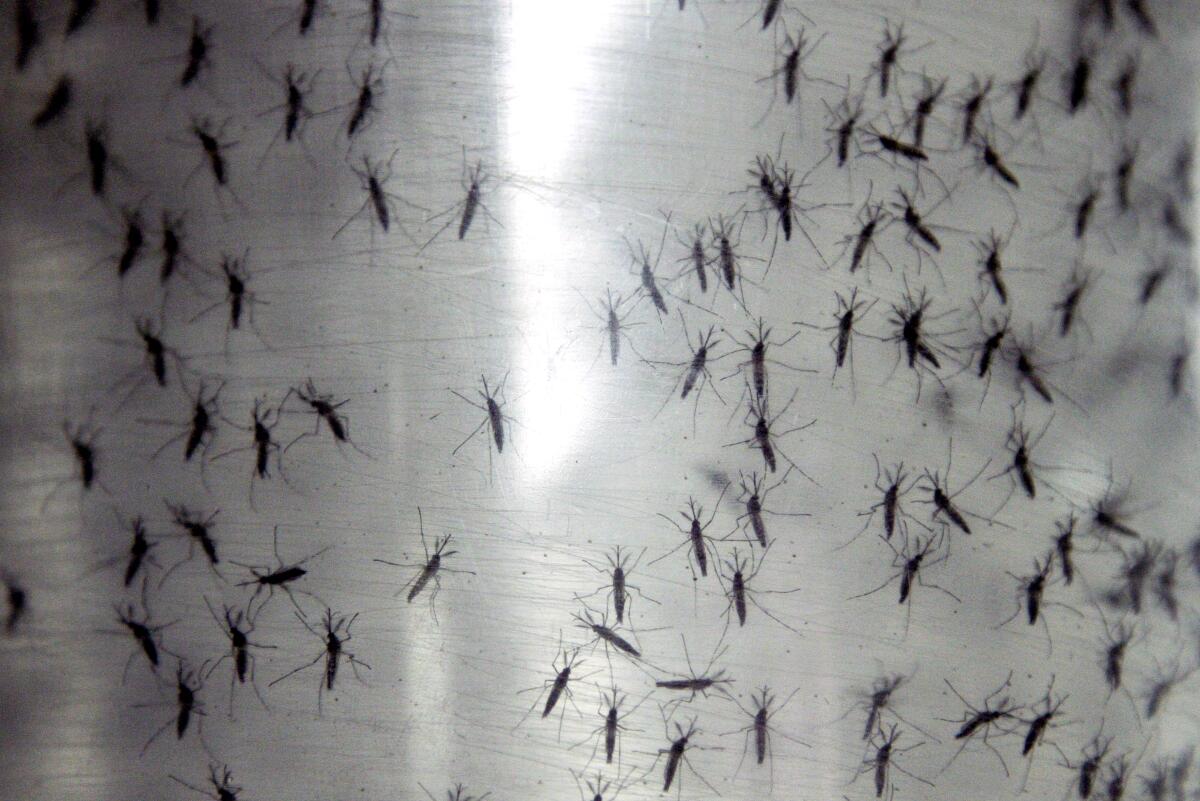Letters to the Editor: Don’t freak out over these genetically modified mosquitoes

- Share via
To the editor: Testing environmentally friendly methods for controlling the scourge that is the disease-spreading Aedes aegypti mosquito should be lauded instead of feared, as was the slant taken by the article on genetically engineered mosquitoes.
Though Aedes aegypti hasn’t yet been a factor for the spread of disease in California, it can carry many diseases. Allowing the spread of that mosquito is like distributing guns everywhere, then just waiting for the right ammunition.
Most scientists working in the field think the testing concerns are minor, and the plans in place to monitor for them more than adequate. Approval by the U.S. Environmental Protection Agency for the testing took well over a decade with many hurdles. Suggesting that the EPA hasn’t been thorough approaches being disingenuous.
A pesticide-free, eco-friendly way to control such a potentially dangerous vector of disease would be amazing. Hopefully the testing in California will be as good as it was in Brazil.
Richard Green, Ventura
..
To the editor: “The EPA said it could shut down the experiment if problems are found.” When regulators make such statements about the release of genetically modified insects, reporters should hold them to a higher standard.
Shutting down an experiment means not doing it anymore. Undoing the damage from an experiment that goes wrong in the wild may well be beyond human ability.
Similarly, to describe glyphosate-resistant crops as “making farming easier” is irresponsible. In the short run, that statement may be true — but the price has turned out to be the creation of superweeds, which definitely don’t make farming easier.
The pandemic resulted from the experiment of humans encroaching too far on nature. Then there’s the ongoing experiment of introducing carbon into the atmosphere at an accelerated rate. How many more experiments can we withstand?
Susan Rakov, Santa Barbara
The writer is director of the Frontier Group, an environmental research organization.






